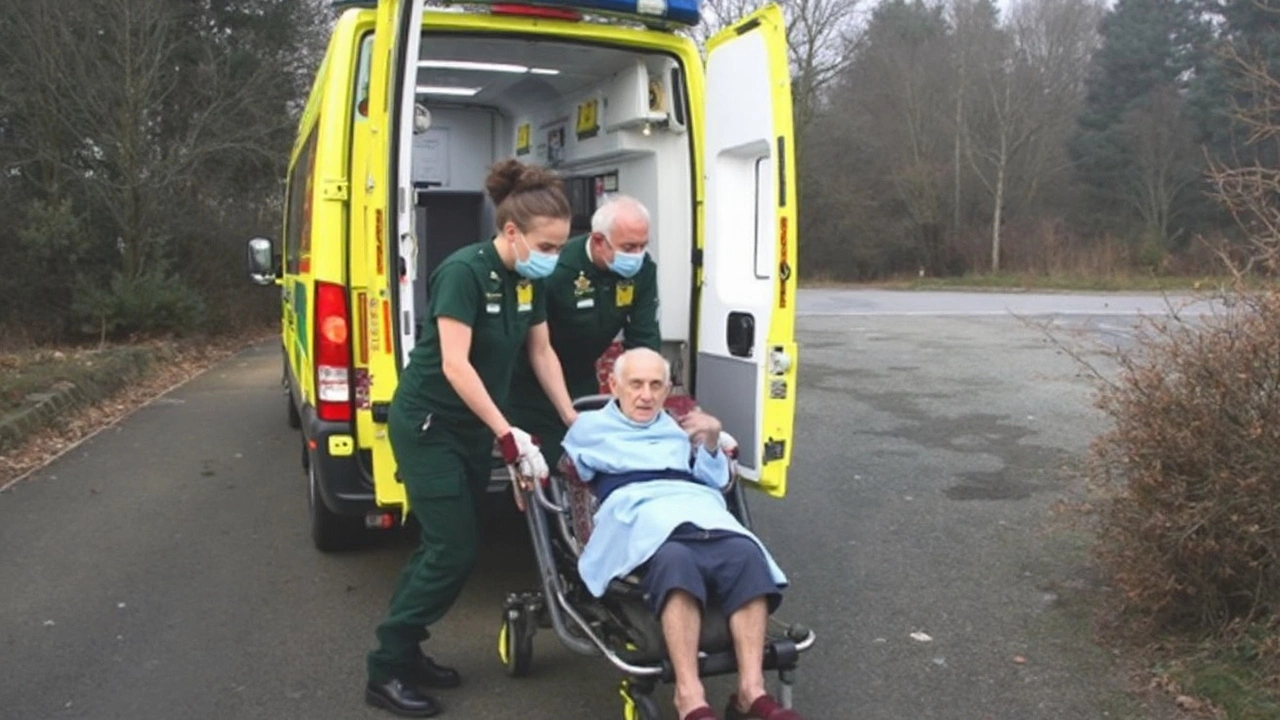Health News: Inside the NHS Ambulance Crisis
Did you know an 86‑year‑old man spent days nursing a bruised arm because a TV ad told him to only dial 999 for life‑or‑death emergencies? That story grabbed headlines, but it also shines a light on a bigger problem: the NHS ambulance service is under huge pressure, and the impact is being felt by everyday folks.
When you hear "ambulance crisis," it often feels abstract – a statistic in a report or a distant headline. In reality, it’s a queue of calls, stretched crews, and longer waits for people who need urgent help. Front‑line paramedics report 12‑hour shifts packed with delayed calls and record‑slow response times. The winter months make it worse, with more accidents and illnesses adding to the backlog.
What’s really happening on the front lines?
Paramedics in the West Midlands gave us a front‑row seat during a Sky News ride‑along. They showed how a single call can get stuck in a bottleneck while crews juggle non‑critical and critical cases. The crew’s experience highlighted three pain points:
- Delay in dispatch: Even after a call is logged, waiting for an ambulance can take longer than before.
- Resource stretch: Fewer ambulances and more patients mean crews run out of breathing room.
- Winter surge: Cold weather drives up falls, flu, and heart issues, pushing the system past its limit.
These factors combine to leave vulnerable people, especially the elderly, in limbo. The 86‑year‑old’s story isn’t a one‑off; it’s a warning that the current balance between discouraging non‑urgent calls and protecting those who truly need help is off.
How you can help avoid the crisis
You might wonder what you can do from home. The first step is knowing when to call 999. Use it for genuine emergencies: severe bleeding, chest pain, unconsciousness, or serious injuries. For less urgent issues, consider NHS 111 or your local GP. They can guide you to the right level of care without overloading ambulance crews.
Another practical tip is to keep a basic first‑aid kit at home. Simple items like bandages, painkillers, and a thermometer can bridge the gap while you wait for professional help.
Finally, stay informed. Follow local health news, sign up for alerts from Sutton Sports Hub, and share reliable info with friends and family. When more people understand the system’s limits, the overall demand eases, and everyone benefits.
The NHS ambulance crisis is a real challenge, but it’s not hopeless. By being smart about when to call for help, using alternative health services, and staying updated, you play a part in keeping the system working for those who need it most.
NHS ambulance crisis leaves 86‑year‑old in pain after TV warning
- Kieran Lockhart
- on Sep 25 2025
- 0 Comments
A Sky News ride‑along with West Midlands paramedics uncovered how the current NHS ambulance crisis forces vulnerable people to stay home. An 86‑year‑old man spent days nursing a bruised arm because TV ads told him to call 999 only for life‑or‑death emergencies. The crew’s 12‑hour shift highlighted delayed calls, record‑slow response times and a looming winter surge. Front‑line staff warn the pattern is unsustainable. Their experience shows the fine line between curbing non‑urgent calls and endangering those who truly need help.
